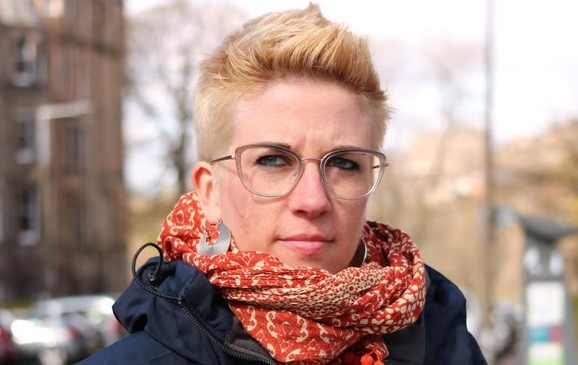Trains in the Indian megacity of Mumbai are famously among the most crowded in the world, but they have also become “deaf meeting spots” where deaf people meet and socialise on their daily commute.
These unexpected gatherings in carriages reserved for disabled passengers have been documented by Annelies Kusters, who has just become the first deaf scholar to be made a full professor in the field of deaf studies and sign language studies in the UK.
While other countries in Europe and the US already have deaf professors working in these fields, Kusters says such an appointment is long overdue in the UK, which until now only had hearing people as full professors – about 10 to 15 of them.
Kusters, who has studied deaf communities around the world for almost 20 years, takes up the position at Heriot-Watt University in Edinburgh, where she has been promoted from associate professor to professor in sociolinguistics in the department of languages and intercultural studies.
“I realise I am very privileged that I have made it this far,” Kusters said. “But I am standing on the shoulders of the deaf lecturers and scholars who educated me – and I support others to stand on mine.”
Deaf studies and sign language research first took off in the UK in the late 1970s. “I was educated by deaf lecturers in Bristol in 2006 and a deaf scholar supervised my PhD,” Kusters said. “It feels weird that I am now standing where my current deaf colleagues, and the colleagues in Bristol, or even my previous supervisor, never have stood.”
Belgian-born Kusters, 40, describes one of her research interests as observing deaf people in their day-to-day lives, and her work has taken her to Brazil, Denmark, France, Ghana, India, Italy, Kenya and Suriname.


